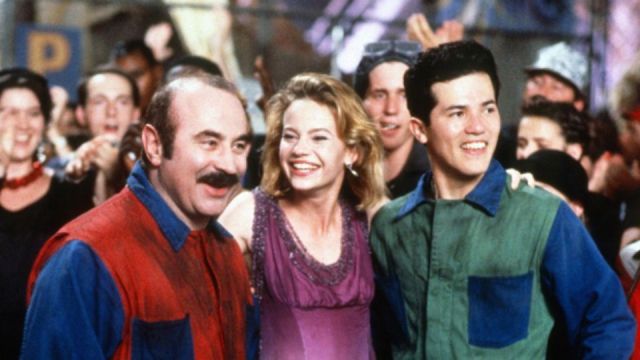YouTube is guilty of criminal racketeering. That’s the headline-grabbing claim of Grammy award winning musician Maria Schneider, who claims that the Google-owned site is abusing the Digital Millennium Copyright Act to siphon money away from musicians into its own pockets.
Source: TF, for the latest info on copyright, file-sharing, torrent sites and ANONYMOUS VPN services.
 Throughout the heated exchanges of the SOPA anti-piracy debate in 2011 and 2012 the entertainment industries demanded tough legislation to deal with the growing menace of overseas pirate sites.
Throughout the heated exchanges of the SOPA anti-piracy debate in 2011 and 2012 the entertainment industries demanded tough legislation to deal with the growing menace of overseas pirate sites.
Now, four years later, the emphasis appears to have switched. While KickassTorrents and The Pirate Bay are still somewhere on the agenda, Google has transformed into the new bad guy and the pressure is mounting in a way never witnessed before.
The U.S. Copyright Office’s request for comments into the efficacy of the DMCA’s safe harbor provisions has resulted in a wave of condemnation for both Google search and the company’s YouTube platform, with everyone from the major record labels to the MPAA and back again attacking the technology giant.
While the language has often been bitter and at times scathing, an attack this weekend by Grammy award-winning musician Maria Schneider really ups the ante by stating that YouTube is guilty of the same criminal acts that Megaupload is currently accused of.
“YouTube is guilty of criminal racketeering,” Schneider wrote in an open letter to the platform.
“YouTube has thoroughly twisted, contorted, and abused the original meaning of the outdated DMCA ‘safe harbor’ to create a massive income redistribution scheme, where income is continually transferred from the pockets of musicians and creators of all types, and siphoned directly into their own pockets.”
But Schneider didn’t step off the gas there. The 55-year-old composer and musical director also turned on lawmakers for allowing Google’s lobbying efforts to cloud their judgment.
“Congress seems to be too hypnotized by Alphabet lobbyists, swarming like locusts, for the lawmakers to stand up straight with a firm sense of right and wrong, and defend the Constitution and the citizens of this country,” she added.
“When we analyze the bullying behavior of YouTube, in my opinion YouTube has created an illegal business through intimidation – the classic Webster’s Dictionary definition of racketeering.”
The word ‘opinion’ appears no less than six times in Schneider’s letter, which is probably prudent when accusing one of the world’s most important companies of engaging in organized crime.
Still, Schneider doubles down by insisting that rather than hiding behind the DMCA’s safe harbor provisions, YouTube has lost its right to do so after encouraging its users to become pirates.
“YouTube and its parent Alphabet have obliterated the original meaning of the ‘safe harbor’ law with their bullying and coercive schemes to get their users to disrespect and ignore copyright,” Schneider wrote.
“YouTube has substantially influenced the behavior of hundreds of millions of its users toward infringement, fermenting a veritable pirate orgy. YouTube goes way beyond turning a blind eye to the marauding masses; it actively seduces its users into illegal behavior, and has even managed to make its users believe pirate behavior is beneficial to creators.”
These are bold words but really just the tip of the iceberg of a piece that derides every facet of Google’s “piracy factory” with terminology usually reserved for gangster movies. Accusing YouTube of
being “pusher” of pirate activity on its unsuspecting “users”, Schneider says the company bullies, demonizes, intimidates and threatens rightsholders into submission.
“The sweeping influence of their scam has succeeded in dismantling copyright from the inside, like a flesh-eating virus, influencing citizens to destroy themselves. Any company influencing behavior like this, especially for the purposes of eroding Constitutional rights, should lose their safe harbor,” she adds.
In closing, Schneider has several key demands. Front and center is a call for “takedown and staydown“, the mechanism championed by every Google critic thus far in this DMCA consultation.
Second, the musician wants stricter controls on upload, including the mandatory use of the latest digital fingerprinting technology. How these would allow for fair use isn’t discussed.
Finally, she wants copyright holders’ identities hidden when they carry out a takedown, to stop them being “intimidated” by the public.
The letter in its full glory is available here.
Source: TF, for the latest info on copyright, file-sharing, torrent sites and ANONYMOUS VPN services.




 Apple-Aktien im Wert von über einer Milliarde US-Dollar hat Investor Warren Buffett erworben. Daraufhin stieg der seit Wochen sinkende Aktienkurs. Apple-Chef Tim Cook besucht derweil China und Indien. (
Apple-Aktien im Wert von über einer Milliarde US-Dollar hat Investor Warren Buffett erworben. Daraufhin stieg der seit Wochen sinkende Aktienkurs. Apple-Chef Tim Cook besucht derweil China und Indien. (




